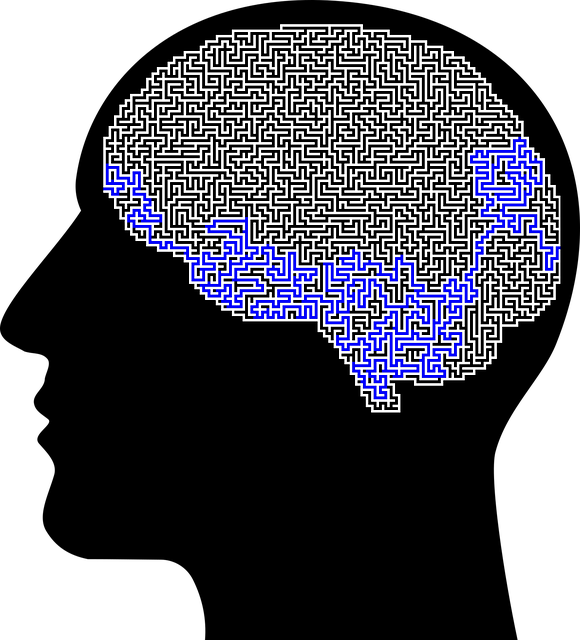Combating Burnout: Comprehensive Strategies for Healthcare Provider Well-being
Burnout among healthcare providers, including those in demanding fields like Highlands Ranch Anger M…….
In the complex tapestry of mental health services, Highlands Ranch Anger Management Therapy (HRAMT) stands as a specialized approach designed to address one of humanity’s most primal and potent emotions: anger. This therapy, rooted in a blend of psychological theories and practical strategies, aims to help individuals manage and control their anger effectively, leading to improved relationships, enhanced well-being, and a more harmonious existence. The following article delves into the intricacies of HRAMT, exploring its history, methods, global reach, and future prospects. By the end, readers will gain a comprehensive understanding of this vital field and its profound impact on individuals and communities worldwide.
Highlands Ranch Anger Management Therapy is a structured, evidence-based program that assists individuals in recognizing, understanding, and regulating their anger. It draws from various therapeutic modalities, including cognitive-behavioral therapy (CBT), mindfulness practices, and motivational interviewing. The core components of HRAMT typically include:
The roots of anger management therapy can be traced back to the late 20th century, with an increasing recognition of anger as a significant emotional issue in both clinical and everyday settings. Early approaches focused on treating anger as a symptom of other mental health disorders, such as depression or post-traumatic stress disorder (PTSD). However, as research mounted, it became evident that anger itself deserved specialized attention.
In the 1980s and 1990s, pioneering psychologists like Charles D. Kernig and William C. Moyer laid the groundwork for structured anger management programs. Their work led to the development of various therapeutic models, with Highlands Ranch Anger Management Therapy emerging as a prominent and effective approach. Today, HRAMT is widely recognized as an essential component of mental health care, serving individuals across diverse demographics.
Highlands Ranch Anger Management Therapy’s significance transcends geographical boundaries. Anger, a universal human emotion, affects people from all walks of life, cultures, and backgrounds. The World Health Organization (WHO) estimates that around 1 in 4 adults worldwide experience high levels of stress due to anger management issues. This makes HRAMT a globally relevant therapy, addressing a pressing need for effective emotional regulation strategies.
Moreover, cultural adaptability is a key strength of HRAMT. While the core principles remain consistent, therapists can tailor their approaches to accommodate cultural nuances, ensuring the therapy resonates with individuals from different ethnic, religious, and social backgrounds. This adaptability has contributed to its widespread adoption and success in various international settings.
Highlands Ranch Anger Management Therapy has left a significant mark on mental health practices worldwide. Its influence is evident in numerous countries, with many adopting elements of this approach into their official guidelines and treatment protocols. For example, the UK’s National Health Service (NHS) incorporates anger management techniques as part of its broader emotional support services. Similarly, in Canada, HRAMT has gained traction within community health centers and private practices.
The implementation and popularity of HRAMT vary across regions due to several factors:
The global anger management therapy market is a growing sector, driven by increasing awareness, changing cultural attitudes, and rising demand for evidence-based mental health services. While exact market size estimates vary, industry reports suggest substantial growth potential, especially in the context of rising mental health expenditure worldwide.
Private investment in HRAMT has been significant, with many businesses recognizing the therapy’s potential to improve employee well-being and productivity. This trend is leading to the development of corporate wellness programs that incorporate anger management workshops and one-on-one therapy sessions. Public funding, too, plays a crucial role, with governments investing in community-based HRAMT services as part of their broader healthcare initiatives.
The economic impact of HRAMT is multifaceted:
Technology has revolutionized the delivery of Highlands Ranch Anger Management Therapy, offering new opportunities for accessibility, flexibility, and personalization:
The future of HRAMT technology holds immense promise:
The development and delivery of HRAMT are influenced by various policies and regulations that vary across jurisdictions:
Policies and regulations shape the landscape of HRAMT in several ways:
Context: In a large urban center, community health centers identified high levels of anger-related issues among their clientele, particularly among young adults and new parents.
Approach: The centers implemented a community-based HRAMT program, offering group workshops and individual therapy sessions at accessible locations, including community centers and schools. The program incorporated mindfulness practices, stress management techniques, and communication skills training tailored to the specific needs of their target groups.
Outcomes: Within 6 months, a significant reduction was observed in anger-related incidents reported by participants. Follow-up surveys revealed improved relationships with partners, family members, and peers, along with enhanced emotional well-being. The program’s success led to its integration into the centers’ long-term mental health services.
Context: A major technology corporation was experiencing high employee turnover rates, attributed in part to workplace conflicts and stress-related issues.
Initiative: The company’s HR department partnered with a specialized HRAMT provider to design and implement an anger management wellness program for employees. The program included interactive workshops on conflict resolution, emotional intelligence, and stress management.
Impact: After 12 months, the company reported a 30% reduction in employee turnover rates and a 25% increase in overall job satisfaction. Surveys also indicated improved workplace relationships and a more positive work environment. The program’s success led to its expansion across all corporate branches worldwide.
Scenario: A group of adolescents, aged 13-17, exhibited chronic anger management problems, leading to disruptions in school and home environments.
Intervention: Local youth services collaborated with a clinical psychologist to develop an age-appropriate HRAMT program focusing on emotional regulation skills, problem-solving strategies, and mindfulness techniques. The program utilized group therapy sessions, role-playing exercises, and parent involvement workshops.
Results: After 6 months, participants demonstrated significant improvements in anger expression and management, leading to better academic performance and more harmonious home lives. Parent feedback highlighted enhanced communication and reduced frequency of behavioral incidents at home. The program’s success encouraged the implementation of similar initiatives across other youth services.
Highlands Ranch Anger Management Therapy has come a long way since its inception, evolving into a powerful tool for improving individual well-being and fostering healthier communities. Technological advancements, policy support, and growing cultural awareness have opened new avenues for delivering HRAMT, making it more accessible, flexible, and personalized than ever before.
While challenges remain, the future of HRAMT looks bright. As research continues to inform practice, and technology pushes boundaries, we can expect to see even greater advancements in this field. With increased access and improved outcomes, HRAMT is poised to play a pivotal role in promoting mental health and well-being on a global scale.

Burnout among healthcare providers, including those in demanding fields like Highlands Ranch Anger M…….

Crisis intervention is a vital component of mental health support, offering immediate assistance dur…….